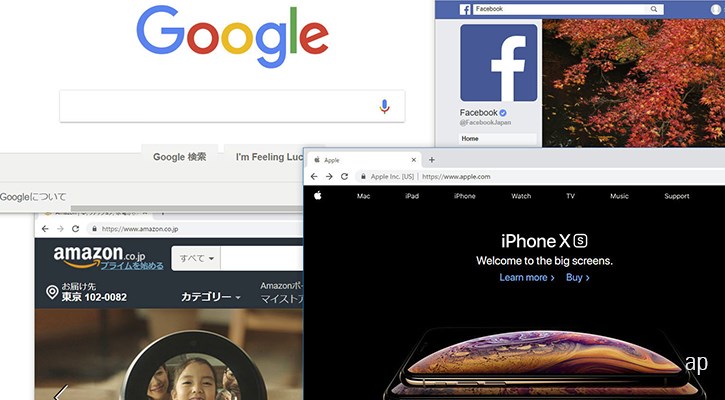
Last year I made a New Year's resolution to see an IFA and in September, I finally stopped putting it off. In the end, I found the experience was better than I had feared. If you, too, are not sure what to expect from your first visit to a financial adviser, we're here to help.
Here are the answers to some of the most common questions people have when considering seeing an IFA:
How Do I Find an IFA?
In the pre-Zoom era, you might have simply chosen a local IFA because it would save you travel time, or maybe their office is on your local high street. But 2020 taught people that you don’t have to be there in person to have a (virtual) face-to-face meeting, so proximity matters less than it used to. But more choice can actually make the search harder.
Online reviews may be a good place to start, or a recommendation from friends or family may be your preferred way. Likewise, for obvious reasons, you might not to use your parents’ adviser.
As with any investment decision, the more research you do, the better. Company websites can be vague so a quick phone call explaining what you need can be a good start – and an email is an easy way to get the ball rolling without committing too much. Be prepared to shop around: one IFA might be strong on pension planning when you really need some mortgage or life insurance advice, for example.
What if I Change My Mind?
Naturally, people fear racking up charges and don’t know how much advice costs. But IFAs are tightly bound by regulations about how they charge clients and must make these terms and fees clear from the outset.
Advisers often offer a free “no commitment” consultation where you can get to know each other; like all one-to-one services, you may not get on with the person and decide it’s not for you.
The adviser should make it clear at what point you have agreed to take on their services. Some may even offer a “cooling off” period in case you change your mind; at the same time, it is probably better to change your mind quickly rather than asking the IFA to go away and do lots of work on your behalf. One key question to ask is whether the adviser is free to recommend products from across the entire market place (hence the “independent”) or is tied to a particular provider or limited panel of providers.
What’s the First Meeting Like?
I had a quick introductory phone call ahead of my first proper meeting with the IFA and was then given a small amount of homework ahead of our first proper (Zoom) meeting: I had to have pension, Isa, mortgage statements to hand and some ballpark figures.
The first session was a “fact finding” mission to discover some basics about my finances and why I wanted to use an IFA. Unfortunately, it became clear at this stage that I couldn’t just hand over my paperwork to the IFA and say “can you sort out my finances?”.
Be prepared to be asked some searching questions: for example, when do you want to retire, how comfortable a retirement do you want, what’s your attitude to risk? These I had to go away and think about – and was given a reasonably detailed risk questionnaire to fill in to help. Don't expect to solve everything in your first meeting, you might have to meet a few times to decide a plan of action - although once this is in place, you may only meet once a year.
How Much Does Financial Advice Cost?
We've all heard about those advisers who won't deal with anyone less than £100,000 in the bank and a six figure salary, but most IFAs will happily take on people with more modest means. Due to the housing boom and changes to pension rules people have more assets than previous generations – and more decisions to make on their own. Inheritance planning is also complicated and no longer the preserve of the rich; a big windfall, although always welcome, can be a headache, for example.
Advisers used to recoup the money from clients by charging commission on financial products such as funds or insurances. But charges must now be clear and transparent from the outset. Some advisers prefer to charge a one-off fee, others charge a percentage of assets under management, and others will charge a combination of both. Of course, the costs depend on what you are asking the IFA to do: a one-off piece of advice on a pension or mortgage will be different from managing your Isas over a number of years.
One common misconception is that advice is only for the wealthy. But FCA research suggests that 60% of advisers specify no minimum amount that clients need to have, while around 20% require a minimum of up to £50,000. And the regulator said it would like more people with more than £10,000 in investable assets to take advice as too many people "hoard" cash as they don't understand how investing works.
What if I Know Better?
Say you know your alpha from your absolute return and don’t want an outsider telling you how and where to invest - then you may not need an IFA to run your money for you.
But many people are in the grey area where they know enough to invest and do OK every year, but don’t know where this fits in with their wider plans. Apart from having growing your money as much as possible, what are your investments trying to achieve? Are they part of your retirement plans, holiday/car money, or for your children to inherit? The answer affects what you invest in and how much - many of the young investors we feature in our Investor Views column are investing to buy a property, for example.
The hardest part of the whole experience for me was showing the adviser my portfolio: it’s a mixed bag, to be honest, with some duds and a handful of winners. The IFA’s input is not necessarily to tell you where to put your money or whether a fund is good or bad, but to make suggestions about how your investments fit together and help you achieve your goals. So there can still be a middle ground between keeping total control yourself and handing everything over to a third party: in my case, I’ve agreed to keep hold of a riskier “fun fund” which will run alongside my core portfolio (here’s more on the core and satellite approach), and I'm now feeling quietly confident that together they can help me reach my goals.




























